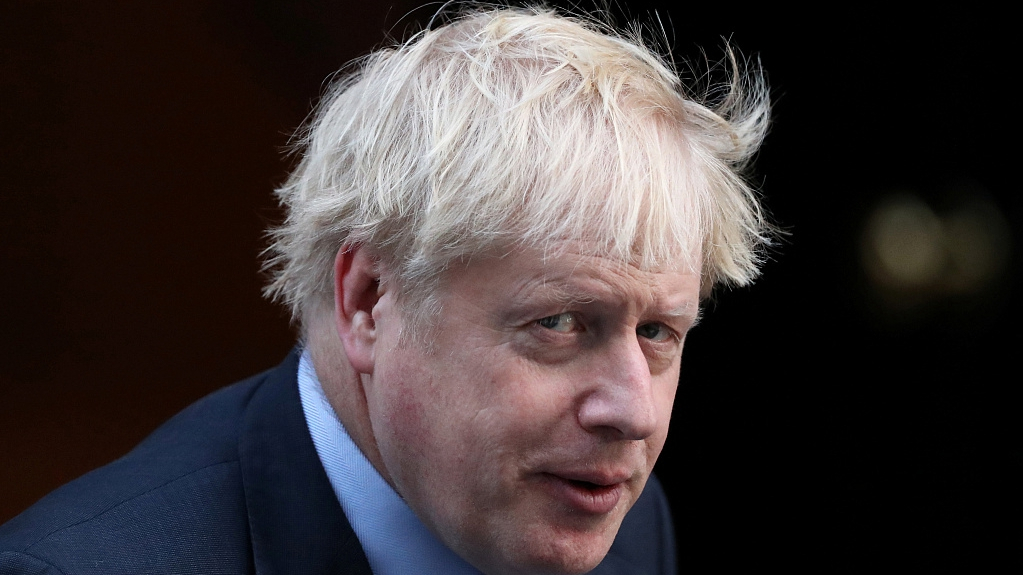
Brexit "Super Saturday" turned out to be a painful experience for Boris Johnson and more trouble lies ahead – but there were silver linings for the British prime minister.
Johnson was forced to request an extension to the Brexit deadline of October 31, something he insisted he would never do, after losing a vote on an amendment withholding support for his deal with the European Union until the legislation underpinning it had been passed.
Yet with a week of crucial votes ahead the government remains upbeat, at least in public, about leaving the bloc in 10 days.
The good news
First, the good news for Johnson.
Few gave the prime minister a chance of striking a deal with the EU, but he has reached an agreement that 306 MPs signaled support for on Saturday even as Johnson suffered a defeat on the Letwin amendment.
By comparison, Theresa May's Brexit deal attracted 202 votes in favor in its first defeat, 242 in its second and 286 in its third.
Read more:
Brexit: What happens next?
What is the Letwin amendment?
Brexit timeline: A tumultuous relationship
Even better news for Johnson, several lawmakers who backed the amendment have said they would vote for his deal if the legislation supporting it is passed, and the EU has indicated it won't rush to grant an extension – building pressure on wavering MPs fearful of a no-deal exit.
In short, if the government can engineer a straight yes-or-no vote in the House of Commons, it looks to have a good shot at winning a majority for its Brexit deal.
The bad news
Unfortunately for Johnson, who appears to have permanently lost the support of the Northern Irish Democratic Unionists (DUP), he's likely to encounter a series of fresh hurdles this week.
The government is expected to try to hold a yes-no vote on the deal on Monday, though Speaker John Bercow may block that attempt given that the same motion was tabled on Saturday.

Speaker John Bercow in the House of Commons, London, Britain, October 19, 2019. /VCG Photo
Speaker John Bercow in the House of Commons, London, Britain, October 19, 2019. /VCG Photo
If the vote is held, it would put some MPs in a tough position – addressing the legislation first, and possibly amending it, would be more a palatable option for some key lawmakers on both sides of the House.
Most likely, the House of Commons and House of Lords will need to pass a withdrawal and implementation bill, due to return to parliament for a second reading on Tuesday, before a final vote can be held.
Getting the legislation through parliament before the end of October is likely to be tight – and some significant amendments threaten to scupper Johnson's "do or die" pledge.
The opposition Labour Party has indicated it will back amendments making the Brexit deal subject to a confirmatory referendum and keeping the UK in the EU's customs union.
The DUP, angered by Johnson's decision to push ahead with his deal despite its opposition, could also back the idea of a customs union.
It remains unclear how broad support for the amendments would be, but if passed either would be fatal to Johnson's strategy and likely lead to an extended deadline and a new attempt to force an election.
And while the EU is holding off on agreeing to an extension for now, it is likely to ultimately agree to a fresh delay if the deal is not passed before the end of the month.
Johnson may also find himself in legal trouble over his controversial letters to the European Council. On Saturday evening he sent one unsigned letter calling for a Brexit extension to the EU, and another saying he did not want a delay.
The Scottish Court of Session will consider on Monday whether the prime minister complied with the law, and the issue could go as far as the Supreme Court.
With just 10 days until October 31, there's likely to be plenty of Brexit drama to come.